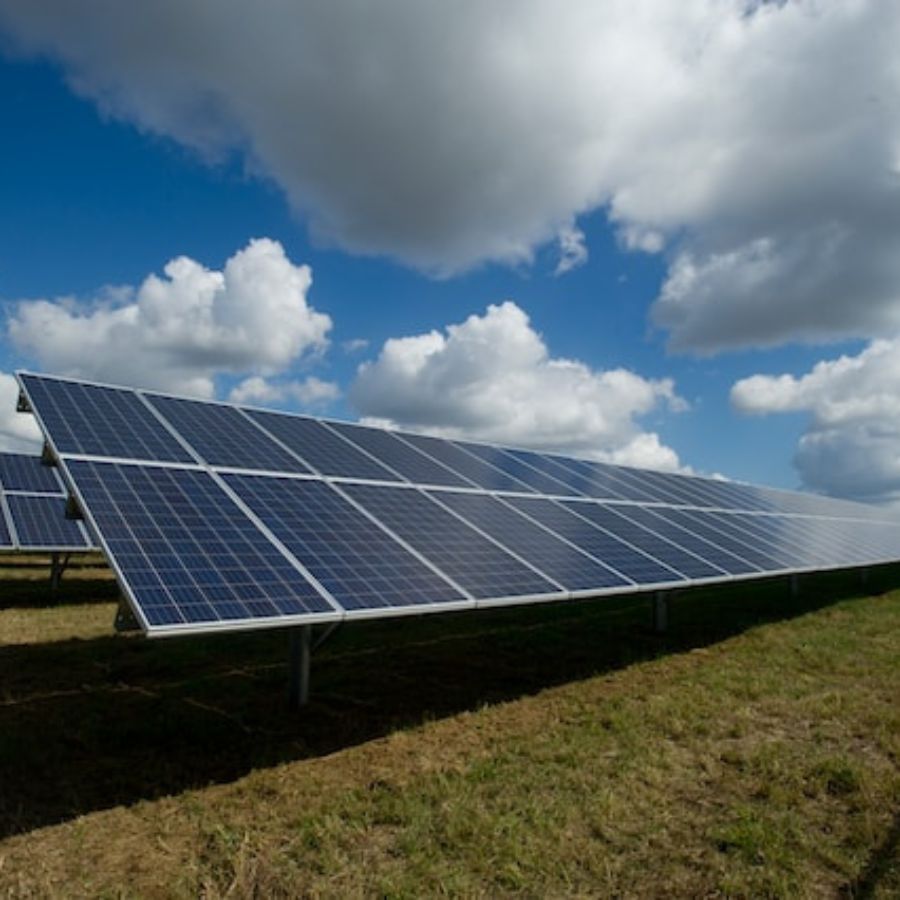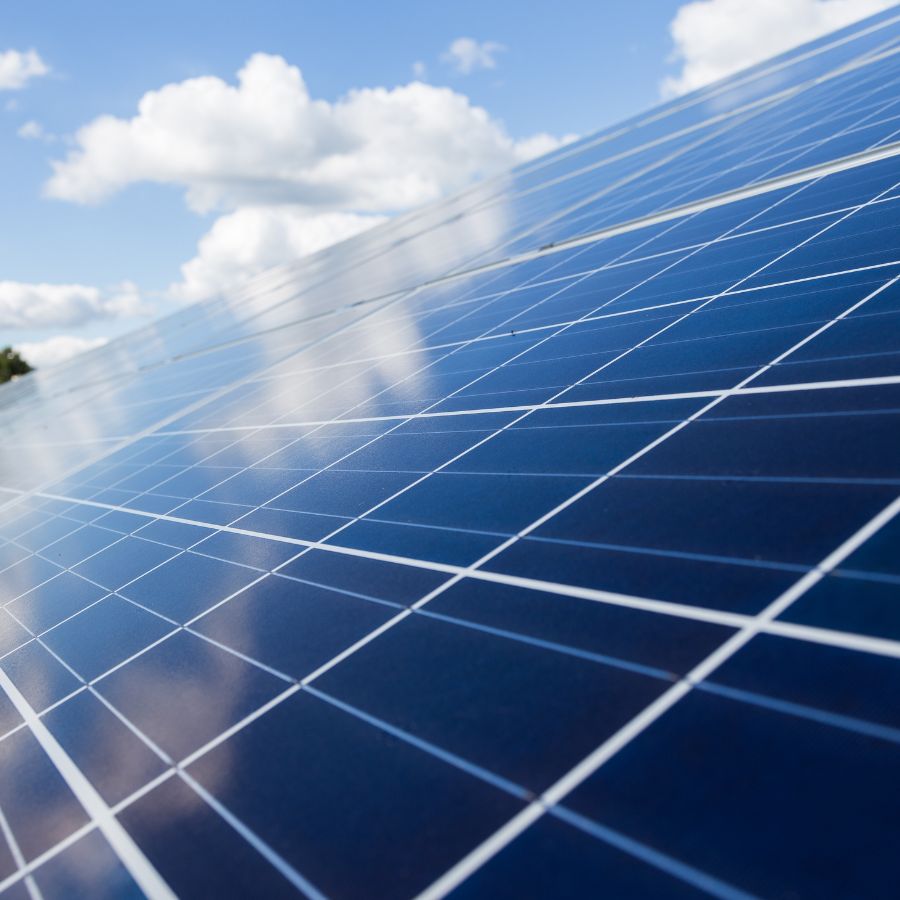For many residents in British Columbia, Canada, the prospect of harnessing clean, renewable solar power to fuel their homes is increasingly attractive. As the global shift toward renewable energy continues, one common question emerges: Do solar panels work on cloudy days? The quick answer is that solar panels work on cloudy days.
However, understanding the how and why behind this requires a deeper exploration into the mechanism of solar panels, their energy efficiency, and how the environment affects PV panel performance. Therefore let’s dive deep into it and discover more.
Understanding Solar Panels and How They Work

Solar panels can collect solar energy and transform it into electrical power. This process happens because of the solar cells, tiny semiconductors that convert sunlight into direct current (DC) electricity.
A solar panel system comprises many solar cells working collectively to produce electricity.
Each solar cell contains layers of a semiconductive material, usually silicon. When sunlight hits a solar cell, it knocks electrons loose, triggering a flow of electricity. It is known as the photovoltaic effect.
Cloudy Days and Solar Panel Efficiency
The question “Do solar panels work on cloudy days?” arises from a reasonable concern: When the sky is cloudy, sunlight is less direct and more scattered.
However, it is crucial to understand that solar panels generate energy not just from direct sunlight but also from indirect sunlight.
When clouds cover the sky, light scatters in all directions. This scattered or diffused light can still reach the solar panels. As a result, even on overcast days, solar panels can still function and generate electricity.
However, it is essential to note that the output will be lower than on a sunny day. PV panel efficiency is directly affected by the amount of sunlight they receive.
The Quantitative Impact – How Much Energy?
How much energy can solar panels produce under cloud cover? Studies indicate that while solar panel performance does decrease in overcast conditions, the drop is not as drastic as one might think.
Solar panels might produce around 10-25% of their rated capacity on a cloudy day.
To understand the impact of weather conditions on a solar panel system, we must factor in cloud cover. Not all cloudy days are the same.
Light cloud cover will allow more sunlight than a heavily overcast day. Thus, the degree to which panels work on cloudy days varies with the intensity and type of cloud cover.
Solar Power Systems and Energy Efficiency
A typical solar energy system includes solar panels and a solar battery. The function of the solar battery is to store solar energy produced by the panels during the day.
One can use this stored energy at night or during low PV panel output periods, such as on very cloudy days.
The energy output efficiency of a solar energy system depends on several factors, including the efficiency of the solar panels and the solar battery and the amount of sunlight available.
Utilizing a solar battery can optimize the system’s energy output, ensuring a steady supply of electricity even when solar panels generate less energy due to weather conditions.
Region-Specific Factors – British Columbia’s Climate and Solar Panels
In British Columbia, Canada, where the weather can be cloudy quite often, understanding how solar panels work in cloudy weather is particularly important. The region has an average of 166 days per year with some amount of cloud cover, which can lead some to question the viability of a solar energy system.
However, despite these conditions, solar energy can still be a feasible and sustainable power source. Germany, for example, receives similar levels of sunlight to British Columbia and is one of the global leaders in solar energy use.
Moreover, British Columbia’s cold climate can ]be beneficial for PV panel performance. Solar panels operate more efficiently in cooler temperatures, and the reflection of sunlight off snow can further increase the amount of light available to the panels.
How to Get the Most out of Solar Panels on Cloudy Days?
Just because the sky is overcast doesn’t mean your solar panels stop working. Here are some tips to get the most out of your solar panels, even on cloudy days.
1. Optimal Installation: Consider the orientation and tilt when installing solar panels. For maximum sunlight exposure, panels in the northern hemisphere should face south and vice versa. Adjust the tilt based on your latitude and the time of year.
2. Use High-Quality Panels: Not all solar panels are created equal. Some panels can perform better in low-light conditions. Investing in high-quality panels can yield better results on overcast days.
3. Regular Maintenance: Keep your solar panels clean and debris-free. Dust or bird droppings can block sunlight, reducing efficiency on cloudy days.
4. Smart Load Management: Save energy-intensive tasks, like running the dishwasher or laundry, for sunny days when your panels produce more energy. On cloudy days, focus on lighter energy use.
5. Install a Solar Battery: A solar battery stores surplus energy produced on sunny days for use on cloudy days or at night. This addition to your solar system can ensure a steady power supply regardless of weather conditions.
Remember, while solar panels work best under direct sunlight, they still function on cloudy days. These tips can optimize their performance and ensure a steady renewable energy supply. Besides, this could ultimately give you the desired output.
Conclusion – The Ultimate Answer
So, do solar panels work on cloudy days? Absolutely. Although the energy output of solar panels is less on overcast days than on clear, sunny ones, the panels still produce electricity.
A well-designed solar power system with a high-quality solar battery can further optimize energy output, ensuring a reliable power source even on the cloudiest days.
The viability of solar power in British Columbia demonstrates that with the right system in place, harnessing solar energy can be an effective and sustainable choice, regardless of the weather.
So, don’t let the clouds deter you from considering a PV panel system. Harnessing solar energy is possible and a practical and green solution for our ever-growing energy needs.
Frequently Asked Questions
How Efficient Is a Solar Panel on a Cloudy Day?
The efficiency of a PV panel on a cloudy day depends on the degree of cloud cover, but generally, solar panels work and can produce 10-25% of their rated capacity. It means a solar system can continue to generate energy even under cloudy conditions. The efficiency may be lower than on a bright, sunny day, but your solar panels are still working to harness solar power.
How Much Will a 100-Watt Solar Panel Output on a Cloudy Day?
The output of a 100-watt solar panel on a cloudy day can vary based on the cloud cover level and how much indirect sunlight is still reaching the panel. However, if we apply the 10-25% efficiency range typically observed on cloudy days, a 100-watt solar panel may produce around 10 to 25 watts.
Remember, installing solar panels means preparing for the natural variability of weather conditions, and the panels will continue to harness energy throughout these fluctuations.
Do Solar Panels Work in the Shade?
Yes, solar panels can work in the shade, but their output significantly reduces when exposed to full sunlight. A solar panel’s performance is directly proportional to its sunlight intensity. Shade from buildings, trees, or other obstructions can affect how much sunlight your solar panels receive, thus impacting their efficiency.
Considering this when installing solar panels is essential to ensure they are in an excellent position to receive maximum sunlight exposure. Nonetheless, even in the shade, your solar panels will continue to work, albeit at reduced efficiency.


Leave a Reply